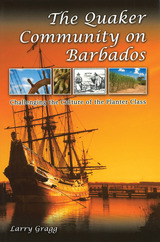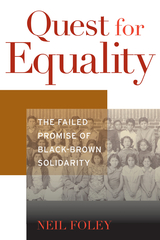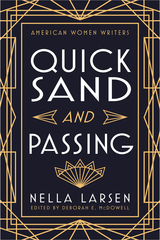4 start with Q start with Q

Gragg has conducted meticulous research on two continents to re-create the Barbados Quaker community. Drawing on wills, censuses, and levy books along with surviving letters, sermons, and journals, he tells how the Quakers sought to implement their beliefs in peace, simplicity, and equality in a place ruled by a planter class that had built its wealth on the backs of slaves. He reveals that Barbados Quakers were a critical part of a transatlantic network of Friends and explains how they established a “counterculture” on the island—one that challenged the practices of the planter class and the class’s dominance in island government, church, and economy.
In this compelling study, Gragg focuses primarily on the seventeenth century when the Quakers were most numerous and active on Barbados. He tells how Friends sought to convert slaves and improve their working and living conditions. He describes how Quakers refused to fund the Anglican Church, take oaths, participate in the militia, or pay taxes to maintain forts—and how they condemned Anglican clergymen, disrupted their services, and wrote papers critical of the established church. By the 1680s, Quakers were maintaining five meetinghouses and several cemeteries, paying for their own poor relief, and keeping their own records of births, deaths, and marriages. Gragg also tells of the severe challenges and penalties they faced for confronting and rejecting the dominant culture.
With their civil disobedience and stand on slavery, Quakers on Barbados played an important role in the early British Empire but have been largely neglected by scholars. Gragg’s work makes their contribution clear as it opens a new window on the seventeenth- and eighteenth-century Atlantic world.

Queer Newark charts a history in which working-class people of color are the central actors and in which violence, poverty, and homophobia could never suppress joy, resistance, love, and desire. Drawing from rare archives that range from oral histories to vice squad reports, this collection’s authors uncover the sites and people of Newark’s queer past in bars, discos, ballrooms, and churches. Exploring the intersections of class, race, gender, and sexuality, they offer fresh perspectives on the HIV/AIDS epidemic, community relations with police, Latinx immigration, and gentrification, while considering how to best tell the rich and complex stories of queer urban life. Queer Newark reveals a new side of New Jersey’s largest city while rewriting the history of LGBTQ life in America.

As the United States championed principles of freedom and equality during World War II, it denied fundamental rights to many non-white citizens. In the wake of President Franklin Roosevelt’s “Good Neighbor” policy with Latin America, African American and Mexican American civil rights leaders sought ways to make that policy of respect and mutual obligations apply at home as well as abroad. They argued that a whites-only democracy not only denied constitutional protection to every citizen but also threatened the war effort and FDR’s aims.
Neil Foley examines the complex interplay among regional, national, and international politics that plagued the efforts of Mexican Americans and African Americans to find common ground in ending employment discrimination in the defense industries and school segregation in the war years and beyond. Underlying differences in organizational strength, political affiliation, class position, and level of assimilation complicated efforts by Mexican and black Americans to forge strategic alliances in their fight for economic and educational equality. The prospect of interracial cooperation foundered as Mexican American civil rights leaders saw little to gain and much to lose in joining hands with African Americans.
Over a half century later, African American and Latino civil rights organizations continue to seek solutions to relevant issues, including the persistence of de facto segregation in our public schools and the widening gap in wealth and income in America. Yet they continue to grapple with the difficulty of forging solidarity across lines of cultural, class, and racial-ethnic difference, a struggle that remains central to contemporary American life.

"Quicksand and Passing are novels I will never forget. They open up a whole world of experience and struggle that seemed to me, when I first read them years ago, absolutely absorbing, fascinating, and indispensable."--Alice Walker
"Discovering Nella Larsen is like finding lost money with no name on it. One can enjoy it with delight and share it without guilt." --Maya Angelou
"A hugely influential and insightful writer." --The New York Times
"Larsen's heroines are complex, restless, figures, whose hungers and frustrations will haunt every sensitive reader. Quicksand and Passing are slender novels with huge themes." -- Sarah Waters
"A tantalizing mix of moral fable and sensuous colorful narrative, exploring female sexuality and racial solidarity."-Women's Studies International Forum
Rutgers' all-time bestselling book, Nella Larsen's novels Quicksand (1928) and Passing (1929) document the historical realities of Harlem in the 1920s and shed a bright light on the social world of the black bourgeoisie. The novels' greatest appeal and achievement, however, is not sociological, but psychological. As noted in the editor's comprehensive introduction, Larsen takes the theme of psychic dualism, so popular in Harlem Renaissance fiction, to a higher and more complex level, displaying a sophisticated understanding and penetrating analysis of black female psychology.
READERS
Browse our collection.
PUBLISHERS
See BiblioVault's publisher services.
STUDENT SERVICES
Files for college accessibility offices.
UChicago Accessibility Resources
home | accessibility | search | about | contact us
BiblioVault ® 2001 - 2024
The University of Chicago Press









